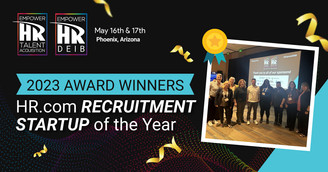We love us some Dr. John Sullivan
He’s a true “thought leader” — a title many claim, but few truly get — in the world of recruiting, so we were interested to read his longer article on improving transparency in the recruiting process. It does end up being an excellent article, and it gives recruiting teams of all experience levels some good ideas about how to make the hiring process more transparent, both internally and externally (i.e. candidate experience).
However, John missed an obvious point, largely because of how we’ve conceptualized recruiting for years. Decades, even.
It’s a good time for such an article: If you were going to assign 2020 a “Year Of…” title, there’s a lot of robust choices. “Year of Lockdowns,” no doubt. “The Year Everything Changed” might work. Here’s a contender: “The Year We Demanded Transparency.” You saw that need everywhere: people were mad at the CDC for changing positions on COVID periodically, i.e. with 2020 holiday travel. There were renewed calls for pay transparency in organizations. Social justice became a massive issue, and people wanted transparency on police reform, hiring practices, and more.
So Dr. Sullivan’s article ends up being helpful. But it omits one major thing: recording job interviews for transparency, training and quality control.
What are the benefits of recording job interviews?
Multiple and myriad, including:
- Internally, you can train recruiters to be better: You can have more senior recruiters and hiring managers listen to conducted interviews and coach up other recruiters on cadence, follow-ups, logistical questions, question order, and more. You essentially clone your best recruiters in this way.
- It’s protection against potential discrimination suits or other legal action: What if a candidate came to you, through a lawyer, and said “your recruiter asked me a question about my religious background/beliefs?” You’d probably be aghast. If all you had were recruiter notes, you might be in a tough situation. But if you can play back the interview and concretely say “No, that never happened,” any action will be dismissed. Flip side: if you do have a rogue recruiter in your ranks asking illegal or ill-mannered questions, you have easy cause for termination with a recorded job interview set.
- Candidates will be more consistent across multiple interviews: In the processes where five people want to do an interview to “know when they know” — which you can reduce by recording job interviews, since 3 of the 5 decision-makers can just listen to the recording — what can happen on the candidate side is that they say slightly different things to each interviewer. That’s inconsistent, and could spell trouble as an employee. With job interview recordings, you can suss that out and everyone (recruiters, hiring managers, other stakeholders) is operating off the same tape, which can be shared one-click in a Slack channel for mutual consideration.
- Helps you improve diversity and inclusion hiring at a time everyone wants to do that: Blind talent previews can remove the photo of the candidate, the name of the candidate (many names create inherent bias), the full resume of the candidate, the LinkedIn profile of the candidate, and just assess the candidate’s responses to a core set of questions. These blind previews can be created in under 10 seconds following a phone screen using Honeit.
- Candidate experience: So much candidate time is wasted in many hiring processes. They have to sit around and wait while notes are passed around, often with limited context, and that’s after they applied (can be very long), did an assessment, did a one-way video call, did the phone screen… weeks and weeks end up adding up. First, as an employer, really good employees might be around right now, especially with COVID layoffs — but the best people get snapped up quickly by companies with better, more streamlined hiring. “Candidate experience” on the employer side is about maximizing speed without sacrificing quality. If you use this approach of interviews as “data” or “intelligence,” now you can send quality portions around to stakeholders. They can consume and analyze on their own time. The right people are involved in the process quicker. On the candidate side, they get to the actual boss (hiring manager) sooner. Ever applied for a job and waited 4-5 weeks to finally connect with a hiring manager, only to realize you could never work with this person? It happens more than we admit. If interviews are “data,” the process is going to move faster. People respond to being “data-driven.” They don’t respond to passed-down, low-context, scribbled notes.
Is it legal to record job interviews?
Job interviews are business conversations. Similar to support calls and sales calls, which have been recorded for decades, recording job interviews for transparency, fairness and higher quality hiring is a must for modern companies.
As you’d expect, a legal context herein. In the USA, All states except for 12 are one-party states. The remaining 12 (California, Connecticut, Florida, Illinois, Maryland, Massachusetts, Michigan, Montana, New Hampshire, Nevada, Pennsylvania, and Washington) are two-party (also called all-party) consent states. In those states, all parties to the recording must give consent for it to be legal. This is not hard to get, generally; you just ask the candidate for it early in the recruiting process.
HoneIt exists, and was built, to help restore trust throughout the recruiting process — and recording job interviews, thus giving all parties the opportunity to “check the tape,” is a core way we do that. To learn more, check out our tech, our testimonials, and consider a free trial.



